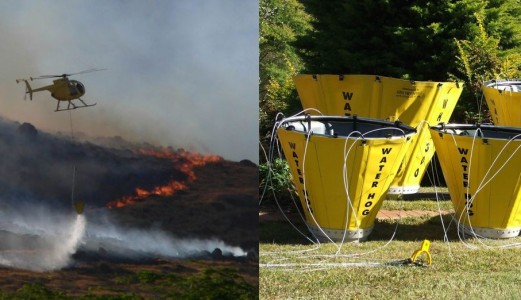The two main risks faced by wildland firefighters in extinction operations and that have an immediate effect on their health, are heat stroke and poisoning from exposure to Carbon Monoxide, an odorless, colorless, inaudible and impossible to stop pollutant.
Its affectations vary from slight headaches, nausea, vomiting, fatigue and difficulty concentrating (at mild exposures), severe headaches, dizziness, loss of perception of the environment, tachycardia and tunnel vision (at medium exposures), loss consciousness, seizures, heart failure or death (at high exposures).

The currently existing CO Sensors were designed for Industrial environment, and they measure the concentration in air in PPM (Parts Per Milion). This data is not enough to evaluate the health status of First Responders, as in firefighting environments CO concentration are higher. Vallfirest is developing an individual Sensor kit able to transmit information in real time, serving a triple goal:
- Carry out measurements of CO concentration levels and exposure times (data collection for later study and analysis in research centers).
- Reliable self-check for first responders, especially wildland firefighters (issuing alert signals when necessary to avoid dangerous exposure levels).
- Establish protocols for the protection and rotation of personnel working in emergencies to avoid risks and accidents.
These device, which will be integrated into the PPE, will be able of detecting CO concentration levels and exposure time (to allow the estimated calculation of COHb -Carboxyhemoglobin- in blood), as well as body temperature, humidity levels and heart rate for heat stroke control. Data transmission will take place in real time by land or satellite to the command centers.
Due to the conception of these innovative equipment, Vallfirest has been selected to participate in the RESPOND-A project, an initiative of the European Union that promotes research and innovation, for the development of equipment that increases the safety of first responders.






